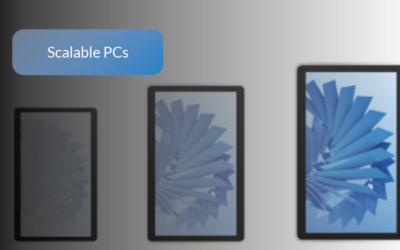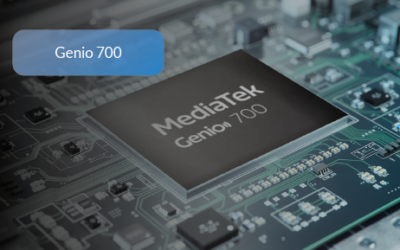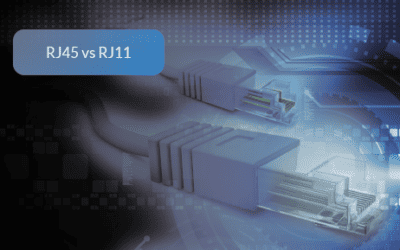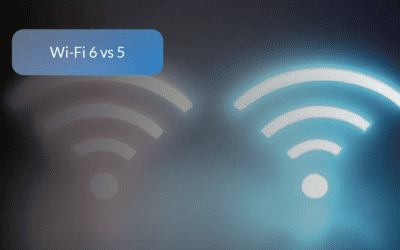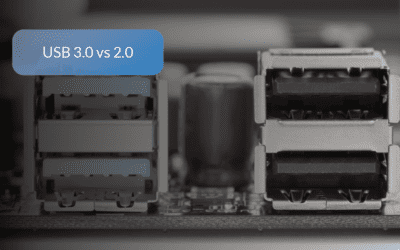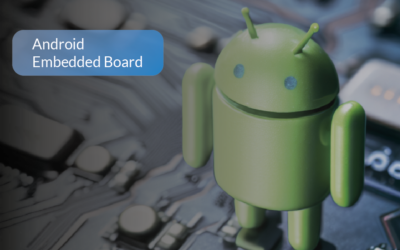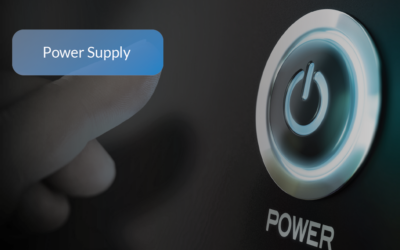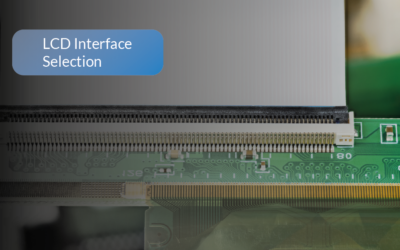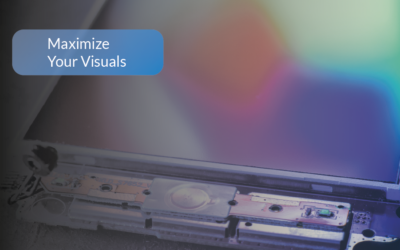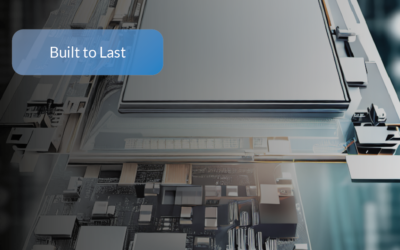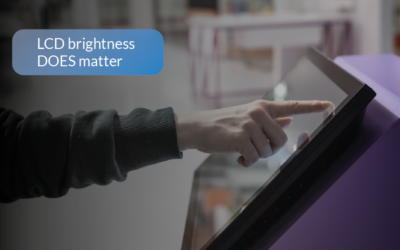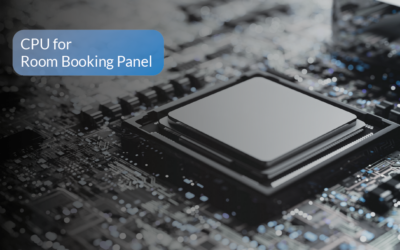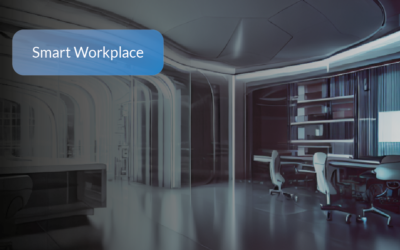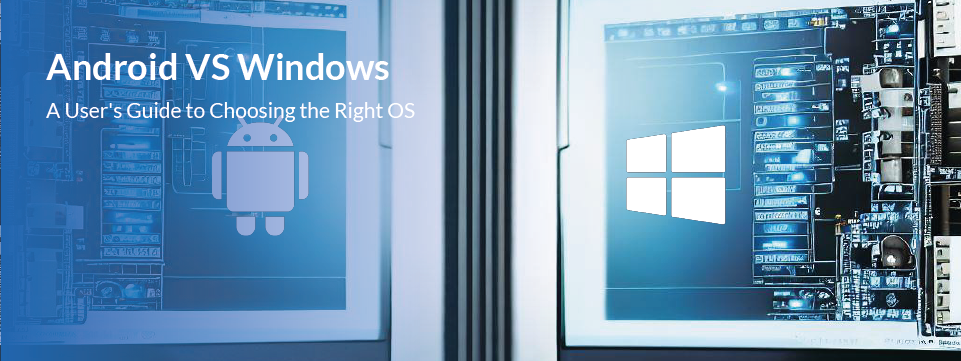
Android vs Windows: A User’s Guide to Choosing the Right OS
Choosing the right operating system for industrial PCs is crucial. This article provides a comprehensive comparison between Android and Windows, focusing on CPU choices, memory usage, and storage usage.
Android vs Windows: The Basics
When it comes to operating systems, Android and Windows stand out as leaders in their respective domains. Each has been developed with a specific type of device in mind, and their unique characteristics reflect these design intentions.
Android, a brainchild of Google, was launched in 2008 and was primarily designed for touchscreen devices like smartphones and tablets. It’s celebrated for its flexibility, user-friendly interface, and a vast ecosystem of apps available through the Google Play Store. Under the hood, Android is built on the Linux kernel, which is known for its robustness, security, and open-source nature. This foundation allows Android to be highly customizable, a feature that manufacturers often leverage to differentiate their devices.
Windows, developed by Microsoft, was first released in 1985 and is a versatile operating system that has been the go-to choice for desktop and laptop computers for decades. It’s known for its intuitive graphical user interface, wide compatibility with hardware and software, and comprehensive feature set that caters to both casual and power users. Windows is based on the NT kernel, which provides a stable and secure environment for a wide range of applications.
While Android and Windows were designed with different types of devices in mind, advancements in technology have blurred these boundaries. Today, both operating systems can be found powering a variety of devices, including industrial PCs. However, it’s important to note that despite some similarities, Android and Windows are fundamentally different. They have different system architectures, user interfaces, app ecosystems, and management tools, all of which can impact the user experience and performance in different scenarios.
Understanding CPU Architectures: ARM vs x86
Before diving into the CPU choices for Android and Windows, it’s important to understand the two main types of CPU architectures: ARM and x86.
ARM, which stands for Advanced RISC Machine, is a type of CPU architecture that’s known for its simplicity and energy efficiency. RISC, or Reduced Instruction Set Computer, means that the CPU uses a small set of simple instructions, which allows it to perform operations more quickly and use less power. This makes ARM-based CPUs ideal for mobile devices like smartphones and tablets, where battery life is a key concern. ARM processors are also capable of executing many instructions in a single clock cycle, which can lead to better performance in certain scenarios. Moreover, ARM-based CPUs are becoming increasingly popular in the Internet of Things (IoT) industry due to their low power consumption, better heat dissipation, and ease of installation.
On the other hand, x86 is a type of CPU architecture that’s based on the Intel 8086 microprocessor. It’s a CISC (Complex Instruction Set Computer) architecture, which means it uses a wide range of complex instructions. This allows x86-based CPUs to perform more complex computations and handle larger amounts of data, making them well-suited for desktop and laptop computers, servers, and high-performance industrial PCs. However, x86 processors tend to generate more heat and consume more power due to their emphasis on performance and high throughputs.
CPU Choices
With this understanding of CPU architectures, let’s look at the CPU choices for Android and Windows.
Android devices often use ARM-based CPUs, which aligns with their focus on energy efficiency and portability. These CPUs are excellent for tasks that don’t require high computational power, and they are also becoming increasingly capable in terms of performance, including AI computing.
Windows devices, on the other hand, often use x86-based CPUs (like Intel’s Core series or AMD’s Ryzen series). These CPUs can deliver high performance and are capable of handling a wide range of tasks, including complex computations and large data workloads. However, they may consume more power and generate more heat, which are factors to consider in certain use cases.
| Android | Windows | |
|---|---|---|
| CPU Choices | ARM-based CPUs | x86-based CPUs |
| Pros | Energy-efficient, increasingly capable in performance, better heat dissipation, ease of installation | High performance, wide range of tasks |
| Cons | Considerations for specific use cases | Higher power consumption, potential for more heat generation |
Memory Usage
Memory usage is a critical factor that affects the performance of an operating system. Android, designed for devices with varying amounts of memory, has efficient memory management strategies. It can run smoothly even on devices with limited memory. For instance, a typical Android device might require at least 2GB of RAM to run smoothly, although more memory would be beneficial for running multiple apps or heavy tasks.
Windows, on the other hand, is a feature-rich operating system that generally requires more memory. A typical Windows installation might require at least 4GB of RAM, although 8GB or more is recommended for better performance. This allows Windows to support a wide range of applications and multitasking.
| Android | Windows | |
|---|---|---|
| Memory Usage | Typically requires at least 2GB RAM | Typically requires at least 4GB RAM, 8GB or more recommended |
Storage Usage
Storage is where the operating system and other files are kept. The storage requirements can vary significantly between Android and Windows due to their different design philosophies and target devices.
Android, designed for mobile devices, is generally more compact and requires less storage space. For instance, a typical Android installation might fit comfortably within 16GB of eMMC storage, although more space would be required for apps and user data. Apps for Android are typically stored in the device’s internal memory or on an SD card, providing flexibility in how storage is managed.
Windows, with its wide range of features and capabilities, requires more storage space. A typical Windows installation might require a hard drive of at least 64GB to accommodate the operating system, applications, and user data. Apps from the Microsoft Store are typically stored in the system drive, which can be managed through the Windows storage settings.
| Android | Windows | |
|---|---|---|
| Storage Usage | Typically fits within 16GB eMMC, apps stored in internal memory or SD card | Typically requires at least 64GB hard drive, apps stored in system drive |
Updates
Operating system updates are a critical aspect of maintaining device performance, security, and functionality. Both Android and Windows have their own update schedules and strategies that reflect their unique design philosophies and user needs.
Android, being a mobile-oriented operating system, typically releases major updates on an annual basis. These updates often introduce new features, user interface improvements, and enhancements to the underlying system. In addition to these, Android also releases security updates more frequently, sometimes on a monthly basis. These updates address vulnerabilities and ensure the security of the system and user data. However, the availability of these updates can depend on the device manufacturer and model, as not all devices receive updates at the same time.
Windows, on the other hand, has a more complex update schedule. Major feature updates are typically released semi-annually, introducing new capabilities and improvements. In addition, Windows also releases monthly updates that include security patches and quality improvements. Unlike Android, these updates are generally available to all Windows users at the same time, although enterprise users may have additional controls over the update process.
| Android | Windows | |
|---|---|---|
| Update Frequency | Major updates typically released annually, security updates more frequently | Major feature updates semi-annually, monthly security patches and quality improvements |
Android vs Windows for Industrial Use
When it comes to industrial use, the choice between Android and Windows depends on your specific needs and the nature of the tasks your system will be performing.
Android, with its efficient use of resources and wide range of apps, is an excellent choice for systems that don’t require high computational power. For instance, if your industrial PC is primarily used for data collection, monitoring systems, or running specific apps, Android could be a cost-effective and efficient solution. Its lower memory and storage requirements can also be beneficial for compact or portable industrial PCs.
Windows, on the other hand, provides a more desktop-like experience and has the ability to run full-fledged Windows applications. If your industrial PC needs to handle complex computations, large data workloads, or run specialized software that’s only available on Windows, then a Windows-based system would be more suitable.
Bonus Tips: At LV-Tron, we have taken Android’s robust update system a step further with our industrial-grade Android firmware. We have heavily modified the Android source code to make it more robust and secure for industrial use. Our solution is specifically designed for smart spaces devices, ensuring that they are vandal-proof and easy to manage. Unlike consumer Android, our industrial Android is tailored to meet the demanding requirements of industrial applications, providing a reliable and secure solution for your operations. This includes managed updates through LV-MDM, ensuring no Android malware is possible, and a hardened operating system customized for industrial use.
Conclusion
Choosing between Android and Windows for your industrial PC depends on your specific needs. Consider the CPU performance, memory, and storage requirements, as well as the type of applications you intend to run. At LV-Tron, we leverage our 22 years of industry experience to offer a range of Android-based industrial PCs designed to meet various needs. From simple monitoring systems to more complex industrial control systems, our products are tailored to cater to the specific needs of our clients, providing highly customizable, secure, and manageable solutions. Our ability to tailor our products to the specific needs of our clients is one of our key strengths.
Remember, the choice of operating system should align with your operational requirements and the tasks you expect the system to perform. For more personalized advice on choosing the right operating system for your industrial PC, don’t hesitate to contact LV-Tron. Our team of experts is ready to help you make an informed decision that best suits your needs.
You can also explore our Best-in-Class DMS for AIoT page to learn more about our expertise and how we can provide highly customizable, secure, and manageable solutions for your industrial PC needs. We look forward to assisting you in your journey towards finding the perfect operating system for your industrial PC.
Transform Your Operations with Scalable Panel PCs
Transform Your Operations with Scalable Panel PCs Industrial PCs have become a cornerstone of modern industrial operations, offering robust and reliable solutions for a variety of applications. However, as industries evolve and requirements become more complex, the...
Driving IoT Innovation with LV-Tron and MediaTek Genio 700 (MT8390)
Driving IoT Innovation with LV-Tron and MediaTek Genio 700 (MT8390) As we continue to embrace the digital age, the Internet of Things (IoT) has become a significant part of our daily lives, with an estimated number of connected devices projected to exceed 75 billion...
The Benefits of Purpose-Built Visitor Management System Kiosks
The Benefits of Purpose-Built Visitor Management System Kiosks Visitor Management System Kiosks are self-service kiosks that allow visitors to check-in, register, and obtain a badge for entry into a facility. In recent years, the need for enhanced security and safety...
RJ45 vs RJ11: Decoding the Mystery of the Fast Connections
RJ45 vs RJ11: Decoding the Mystery of the Fast Connections In our interconnected universe, sluggish network speeds cause frustration and anxiety. Understanding RJ45 and RJ11 connectors is essential for networking and telecom applications. Making a common...
Wi-Fi 6 vs Wi-Fi 5: In-Depth Analysis for Industrial PC Applications
Wi-Fi 6 vs Wi-Fi 5: In-Depth Analysis for Industrial PC Applications With increasing demands for IoT (Internet of Things) devices and industrial PCs, selecting an ideal wireless standard for connectivity becomes more of a critical decision than ever. Here, we present...
USB 3.0 vs 2.0: Which One to Use for Industrial Applications?
USB 3.0 vs 2.0: Which One is Best for Optimized Performance and Cost-Effectiveness? Finding a balance between performance and cost when selecting USB 3.0 and 2.0 for industrial projects is essential. Since its debut in 1996, USB technology has advanced greatly; more...
Selecting the Best Smart Signboard for Capturing Maximum Attention
Discover the essential factors to consider when selecting the perfect smart signboard for your business or project. Learn how to capture maximum attention with the right combination of purpose, size, display quality, connectivity, compatibility, durability, and maintenance. Follow our comprehensive guide to make an informed decision and achieve success with your smart signboard investment.
The Most Flexible and Scalable Android Embedded Board for Your Projects
Choosing the right Android embedded board is crucial for the success of your IoT project. With so many options available, it can be overwhelming to determine which board is best suited for your project. LV-Tron’s Android embedded board options offer a range of advantages, including cost and performance considerations, scalability and flexibility, quick development time, and exclusive features such as hardened Android operating systems and remote device management apps. With LV-Tron’s expertise in the latest technologies and industry trends, you can be confident that our Android embedded board options will meet your project requirements
Choosing the Right Industrial PC Power Supply: Embedded, External, or PoE?
Choosing the Right Industrial PC Power Supply: Embedded, External, or PoE When it comes to powering industrial PCs, three primary options exist embedded power supplies, external power supplies and Power over Ethernet (PoE). Embedded power supplies are built into the...
MIPI, eDP and LVDS: How to choose the right LCD Interfaces for Industrial PCs
Selecting the appropriate display interface technology is crucial for industrial PCs to ensure optimal functionality and high-quality display performance. In this article, we will discuss the features and benefits of MIPI, eDP, and LVDS technologies, all popular LCD interfaces used in industrial PCs. Understanding the differences between these technologies can help you choose the right one for your specific needs and requirements.
Best LCD Types for IPC: TN, IPS, and VA Compared
LCD displays are the most commonly used display technology in industrial PCs due to their durability, versatility, and cost-effectiveness. In this article, we explore the three main types of LCD displays: TN, IPS, and VA, and their benefits for industrial PC applications. We discuss the strengths and weaknesses of each display type, and provide insights on choosing the right display type for your industrial PC. From considering the specific requirements of your application to assessing the environmental conditions in which your industrial PC will operate, we cover all the essential factors to help you make an informed decision. Whether you’re looking for high image quality for graphic design or need accurate color representation for medical imaging, this article will provide you with the knowledge to select the right display technology for your industrial PC needs.
How LV-Tron’s Industrial-Grade Room Booking Panels are Built for Reliability
LV-Tron’s industrial-grade room booking panels are designed to withstand harsh environments and heavy usage. They are built with high-quality industrial-grade components, secure mounting options, and offer software-level security measures. The panels are fanless, shock/vibration resistant, and undergo rigorous quality testing to meet industrial-grade standards for both hardware and firmware. With these features, LV-Tron’s room booking panels provide a reliable and durable solution for any space.
How High-Brightness LCD Displays Can Benefit Your Self-Service Kiosks
Learn why LCD brightness is crucial for your self-service kiosks. Explore the benefits of high-brightness LCD displays and factors to consider when choosing the optimal brightness level.
Choosing the Right CPU Platform for Your Room Booking Panel: Advice from Industrial PC Experts
Choosing the right CPU platform is crucial for optimal performance of your room booking panel. Learn about NXP, MediaTek, and Rockchip CPU options, their benefits and things to consider, and factors to keep in mind when choosing a CPU for your room booking app. LV-Tron, with over 20 years of experience in industrial computers, offers expert guidance and evaluation to help you find the most effective, cost-saving, and future-proof solution for your needs.
Empowering the Future of Smart Workplaces with LV-Tron’s Hardware
LV-Tron’s IoT hardware provides the foundation for the smart workplaces of the future. Learn how meeting room management, on-demand energy consumption, flexible working, and commitment to security can empower your business.

